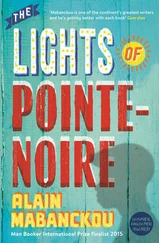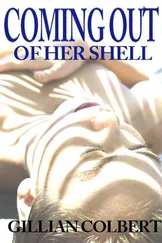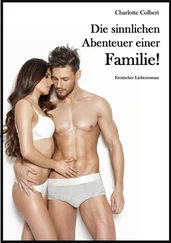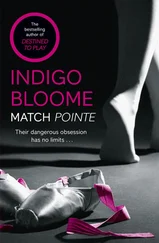For Emily B., my good friend and fellow book addict
I WISH I COULD SAY THE DAY DONOVAN CAME HOME WAS EXtraordinary from the start, that I woke up knowing something special would happen that Thursday evening in October.
But the truth is, it’s like any other day of the week.
I go to school, then I get on the train and go to ballet.
People fawn over the beauty of dance. The long legs and elegant shoes and expertly twisted buns. And it’s not that they’re wrong. Those are all part of the reason I was drawn to ballet at the age of three. But I’d be willing to bet those same people have never set foot in the dressing room of a dance studio. Because you can’t quite look at it the same once you’ve been to the other side.
Straight chaos.
And I’m late, because the Metra never wants to run on schedule when I actually have to be somewhere that matters. I squeeze into an empty corner by the lockers and toss my coat to the floor as I step out of my flats. Everyone is chattering away in various stages of undress, but I’m the only one still wearing all my street clothes. Phil once mentioned he’d like to be a fly on the dressing room wall, and I laughed in his face when I realized he was serious. It’s all A-cups and square hips in here and he said it didn’t matter, that boobs are boobs, but I think he’d be underwhelmed. Also, it reeks of body odor and feet.
I glance to my right, where Ruthie Pathman perches on the edge of the bench, already slipping on her toe shoes. Her back is set in a perfectly straight line and there’s not a curl out of place in her tight, tight bun.
“Staring at me won’t help you get dressed any faster, Cartwright.” She says this without looking in my direction.
“Not all of us have the luxury of driving ourselves into the city,” I say as I tug on my tights. “The train was late.”
But I pull them up too fast, and a run appears mid-thigh, fast and final. I probably have a new pair somewhere in my dance bag, but I don’t have time to deal with that right now. The other girls are already beginning to file out of the room and I’m not even in my leotard.
Ruthie shoves her bag into her locker. “You’ll have to think of a better excuse than that. Nobody likes the blame game.”
She winks at me after reciting one of our ballet instructor’s favorite lines, then snaps her combination lock shut. In a certain light, Ruthie looks like one of those angels pictured in the Bible—pale skin and wheat-colored curls and big, soulful blue eyes. But the only angelic thing about her is her dancing. She’s tiny but she’s been in more physical fights than anyone I know, guys included. And that’s saying a lot—I go to school with a disproportionate number of assholes.
She walks through the doorway, then pokes her head back into the dressing room. “Three minutes.” Her lips curve into a canary-eating smile before she closes the door firmly behind her.
I can get away with lacing my shoes in the studio, but I still have to put up my hair, and Marisa flips when she sees so much as a stray hairpin. It’s all regimented: solid black leotard, blush-pink tights, no loose hair. I am so screwed. I gather up the pile of clothing pooled around my feet and throw it all in my locker. And I’m just going to have to chance being screamed at about my hair, because I’ll be locked out if I don’t run.
The ribbons on my pointe shoes tangle around my ankles and heels with every step, conspiring to trip me as I dash down the corridor. Thanks to the snug elastic against my ankles, I manage to stay upright and fly into the studio only seconds after the official start of class, before Marisa will lock the door for the next hour and a half. She never lets anyone watch the senior company practice.
Marisa is also very serious about punctuality, so much that if you are even two minutes late, she will open the door only to stare you down and ask you to leave. We all learned long ago to set our watches to the studio’s clocks. I’m never late and I am her favorite, so I expect a warning at the most. But she’s not standing near the door at all. Instead, she’s in the far front corner of the room, going over sheet music with an accompanist I’ve never seen before. She’s so preoccupied that my lateness doesn’t even register. I smirk at Ruthie as I use the extra time to tie up the ribbons on my shoes and fashion the thick black hair that crests my shoulder blades into an acceptable bun.
This place feels more like home than home sometimes. There are three studios in the building and they all look the same: sprung floors to absorb shock and protect our feet and joints; long wooden barres running along two sides of the room, their surfaces worn from the grip of so many hands; one whole wall made of mirrored panels that can make you feel like the Swan Queen on your best day and a bloated, dizzy mess on your worst. This is the only studio without windows and it’s my favorite because it means there are no outside distractions.
There are twelve people in the senior company, and most of us have danced together since we were kids. Nine girls, three boys; attitude and ego for days. Caryn has amazing turnout, and some days I’d kill for Elissa’s arms and the height of Toby’s leaps as he propels himself into the air. But I have good feet—these arches were made for pointe shoes—and good musicality, and it may sound conceited, but I know I’m one of the best dancers in this class.
Ruthie stands at the barre, stretching her hamstrings. “Saved by the substitute accompanist. Impressive.”
“Where’s Betty?” I ask as I take my spot next to her. Kaitlin is on the other side of me, sitting a few feet away from the barre in her right split. I can see the muscles in her legs tense under her tights as she stretches to the tips of her toes.
Ruthie shrugs. “No idea, but where’d they find this guy? He looks kind of . . . grungy.”
“You’re a snob.”
But then I turn my head to get a better look at him and—oh.
Ruthie looks at me curiously. “You know him or something?”
I do. He goes to school with me in Ashland Hills, our little suburb outside of Chicago. He’s a year older. A senior. And he is Phil’s dealer.
“I think he goes to my school,” I say, and face the barre so I don’t have to wonder what he’s doing in my ballet class.
Marisa finally crosses the room to close the door, then stands in front, waiting for our attention. She doesn’t have to wait long; she’s the kind of person who commands attention, whether she’s trying to or not. We’re all intimidated, but not because she’s scary, not like the tales of evil ballet mistresses patrolling the room to poke us when we mess up. More because she’s a former professional dancer and this is her studio and we’ve all seen what she can do on a stage. I found her old bio once, and according to my math she’s in her mid-forties now. She doesn’t look much older than her twenty-year-old head shot, though.
“Before we start today, I’d like to introduce you to our new accompanist,” she says.
New? Marisa is careful with her words. She would never introduce a substitute as someone “new.” When I glance at him, his eyes are already on me. I turn back to Marisa. She tells us Betty’s husband is sick. Alzheimer’s. Everyone is quiet because we know Betty has been with her husband since high school. They never had children and she always said the only two things that mattered in life were her husband and the piano, in that order. It’s not fair that she won’t always have both.
Josh Barley’s shoulders slump with the news. Betty loves him most of all and he knows it. He’s kind of hard to resist with his red hair and freckles. There’s something wholesome about him, like he should always be eating apple pie or hanging out at a church picnic.
Читать дальше












